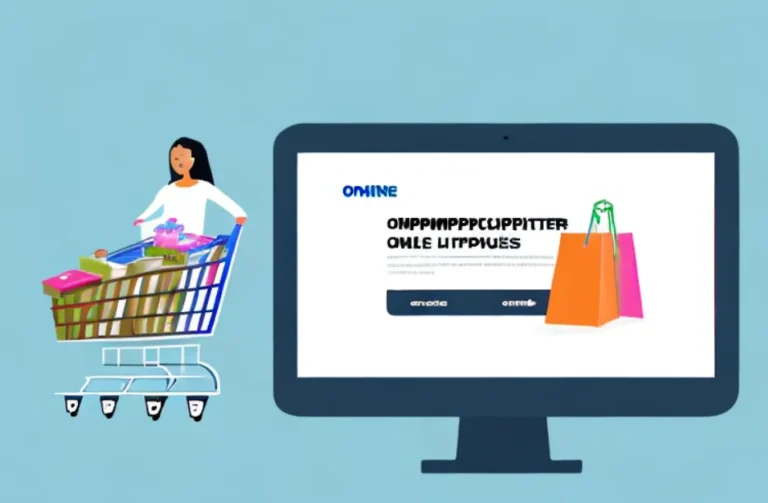Dropshipping has emerged as a favored business model among entrepreneurs venturing into the realm of e-commerce. It boasts of offering flexibility, investments, and the added perk of dispensing with inventory storage concerns. However, a pivotal element in the dropshipping landscape is identifying a supplier. The quest for a credible supplier stands as a cornerstone for success in this arena. Here, we delve into the factors to consider when evaluating dropshipping supplier agreements.
1. Ensuring Product and Inventory Uniformity
When forging alliances with dropshipping suppliers, it becomes imperative to uphold uniformity across the products they furnish. Fortunately, the best suppliers for dropshipping furnish catalogs or product listings tailored to dropshipping purposes. The supplier agreement should delineate the products for listing on your e-commerce platform. By acquainting yourself with these product specifications, you can accurately showcase them on your website and preempt any customer-related issues down the line.
Moreover, it is paramount to assess whether your chosen supplier maintains sufficient inventory levels to meet market demands consistently. Insufficient supply or backorders could culminate in customer dissatisfaction. Tarnish your online retailer reputation over time. It is prudent to ensure that the supplier agreement incorporates clauses addressing how inventory levels are monitored and managed.
2. Shipping Terms and Charges
Another important factor when reviewing dropshipping supplier agreements is the shipping terms and fees linked to their services. Each order processed by your selected dropshipper will have an impact on the customer experience.
It’s advisable to seek out a supplier that offers dependable shipping methods at prices. Keeping customers informed about shipping updates is crucial for ensuring a delivery process.
Review the agreement carefully to ensure no fees or costs could unexpectedly reduce your profits. Transparency regarding shipping expenses from the start can help you make decisions and maintain communication with both suppliers and customers.
3. Return and Refund Policies
In commerce, returns are bound to happen, so understanding how things work in certain situations is crucial for customer satisfaction. When examining a dropshippers agreement, pay attention to their policies regarding returns and refunds.
Some important aspects to consider include whether the supplier allows returns for faulty items, who covers the return shipping costs, and how refunds are handled. Maintaining communication with your supplier and establishing defined return processes can ensure that your customer’s issues are dealt with promptly and effectively.
4. Branding Strategy
Setting yourself apart in the world of commerce involves creating a unique brand experience. While some dropshipping suppliers use packaging, others may allow for branding options.
If incorporating your brand into the packaging is important, you should carefully review the supplier agreement to see if this customization is possible. Creating an unboxing experience can boost customer satisfaction and foster brand loyalty.
5. Platform Compatibility
Before partnering with a dropshipping supplier, it’s essential to verify that their system smoothly integrates with your preferred e-commerce platform. Many suppliers offer integrations with platforms such as Shopify, WooCommerce, or BigCommerce.
The agreement should detail any requirements or restrictions you should know when integrating their inventory management system into your store. Thoroughly checking compatibility in advance will prevent issues.
6. Effective Communication and Support
When collaborating with a dropshipping supplier, clear communication is vital for operations. Seek agreements that specify communication channels and response times for inquiries or concerns.
Good suppliers value communication channels and prompt assistance. The contract should specify how to reach the supplier (such as through phone, email, or an online portal) and detail their expected response times. Additionally, a trustworthy dropshipping supplier UK will offer training and ongoing support to address any queries or challenges that may arise during your collaboration.
6. Pricing Structure and Payment Terms
It is crucial to understand the pricing structure and payment terms outlined in the dropshipping supplier agreement when establishing your business stability.
Carefully review how the supplier determines prices for their products, as this directly affects your profit margins. Ensure clarity in the contract regarding minimum order requirements, volume-based discounts, and potential price adjustments over time.
In conclusion
When entering into dropshipping, paying attention to the specifics outlined in supplier contracts can significantly impact long-term success. Factors like product consistency, inventory availability, shipping terms and costs, return policies, customized packaging options, and compatibility with your e-commerce platform should all be considered when assessing suppliers. When discussing contracts with your selected dropshipper remember these points to reduce risks and establish relationships that promote lasting growth in your business. Enter each negotiation prepared, willing to adjust as needed to address the changing needs of customers and competitors.
